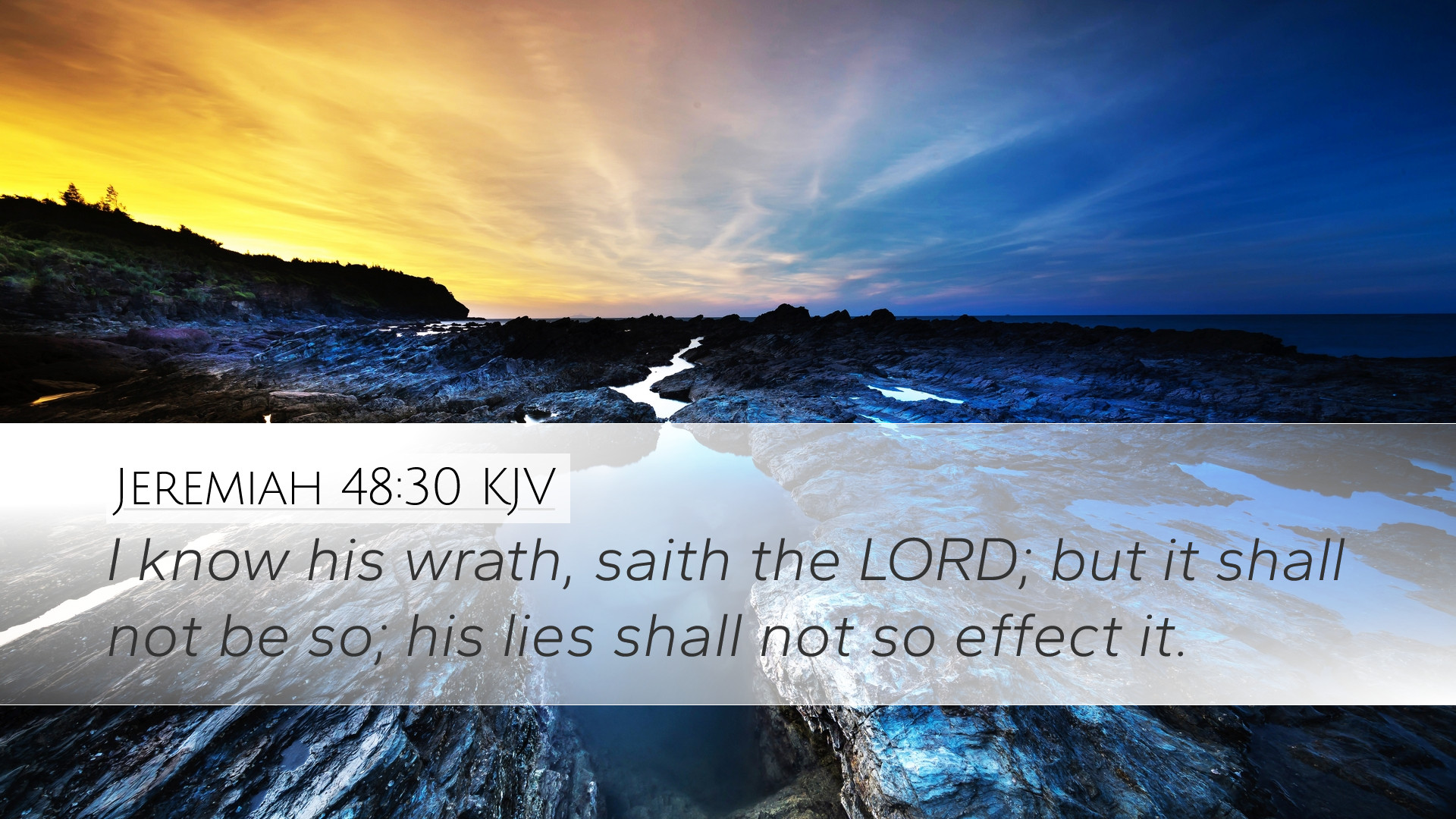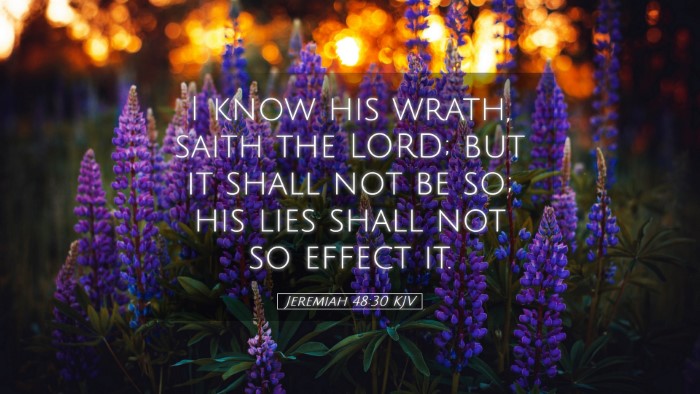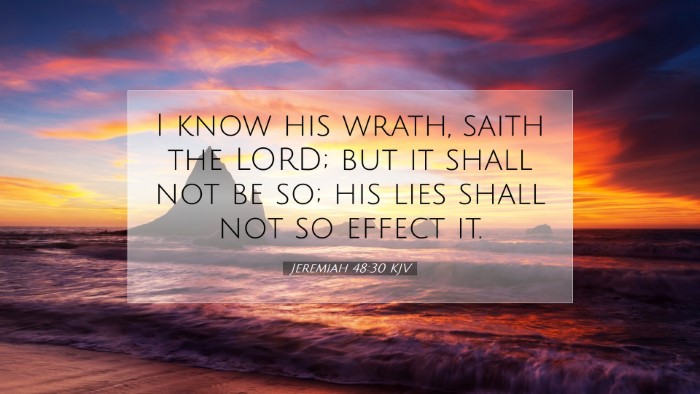Commentary on Jeremiah 48:30
Jeremiah 48:30 states:
"I know his wrath," saith the LORD, "but it shall not be so; his lies shall not so prosper." (Paraphrase)
This verse is a part of God's declaration against Moab, a nation emblematic of pride and rebellion. In providing commentary on this significant verse, we draw from the wisdom of historical theologians and exegetes.
Contextual Understanding
To grasp the meaning of this verse, one must appreciate the historical and theological backdrop of Jeremiah's prophecy. Moab was a neighboring nation to Israel, often characterized by its antagonism towards God’s people.
- Historical Context: Moab descended from Lot, and its people had a long history of conflict with Israel. This verse reflects God’s judgment upon Moab’s arrogance and false security.
- Prophetic Background: Jeremiah was called to be a prophet during tumultuous times, and his role included pronouncing judgment on nations that opposed God’s will.
Theological Insights
Jeremiah 48:30 invites a closer examination of the nature of God’s judgment and the consequences of human pride. The insights of several public domain commentators shed light on these themes:
Matthew Henry's Commentary
Understanding Divine Anger:
Henry elucidates that God acknowledges Moab’s wrath and the emptiness of its boasts. He notes that this verse emphasizes God's omniscience in observing the pride and deceit of Moab.
- Wrath of Moab: God perceives the rage that consumes Moab, which stems from a deep-seated pride.
- False Confidence: Henry points out that the Moabites had placed their trust in their own might and deceptions rather than in the true God. Their lies would ultimately bring them nothing but ruin.
Albert Barnes' Notes
Main Themes of Deceit and Judgment:
Barnes stresses the profound irony in Moab's situation. He notes that while they may be confident in their strength, God's judgment is imminent and it renders all human boasts void.
- Moab's Lies: Moab’s confidence stemmed from their falsehoods—both in their worship of idols and in their belief that they could withstand God's judgment.
- Unavoidable Consequences: Barnes articulates that God's decrees will come to pass, and nations trust in fabrications will face the inevitable day of reckoning.
Adam Clarke's Commentary
Critical Examination of Human Pride:
Clarke examines the characteristics of pride that were evident in the Moabites. He interprets the verse as a reflection of God's awareness of human shortcomings and the ultimate futility of relying on lies.
- God's Omnicompetence: Clarke notes that the phrase “I know” implies God’s sovereign capability to discern the true condition of Moab’s heart.
- Consequences of Rebellion: Clarke warns that those who fail to recognize their dependence on God will incur His judgment, as Moab did.
Practical Applications
For pastors, students, and scholars, this verse provides rich material for both theological reflection and practical application:
- Recognition of Divine Authority: Just as God calls Moab to account, we are reminded of the importance of submitting to God’s sovereignty in our own lives and ministries.
- The Danger of Pride: Moab's example serves as a cautionary tale against the pride that can infiltrate our hearts and churches.
- The Call for Repentance: Acknowledging our tendency towards deceit and returns to God in humility is vital for spiritual health.
Conclusion
Jeremiah 48:30 encapsulates a timeless message about God's judgment against pride and deceit. Through the insights provided by revered commentators, we are challenged to reflect on our reliance upon God and to recognize the inevitable confrontation between divine truth and human falsehood.


